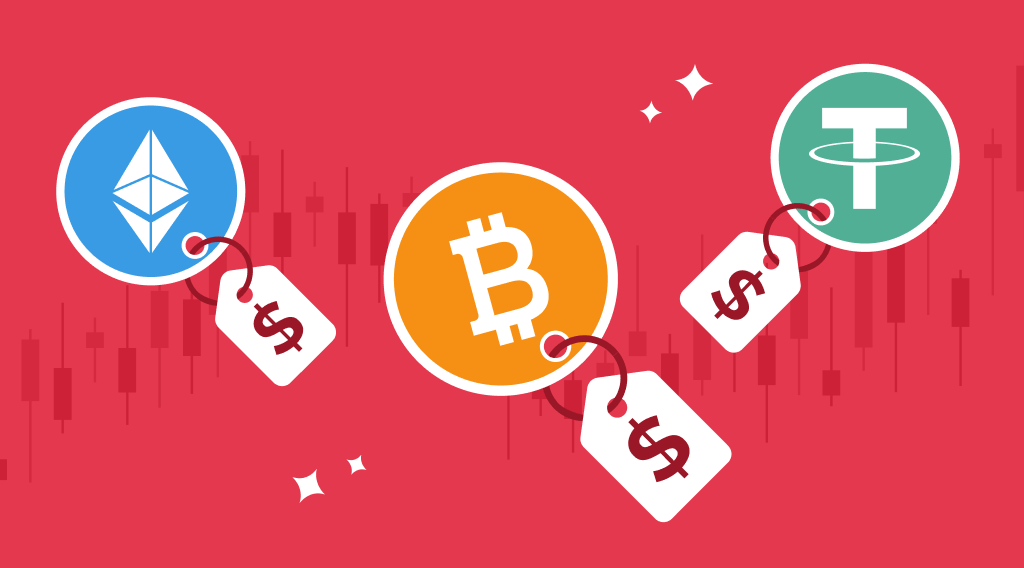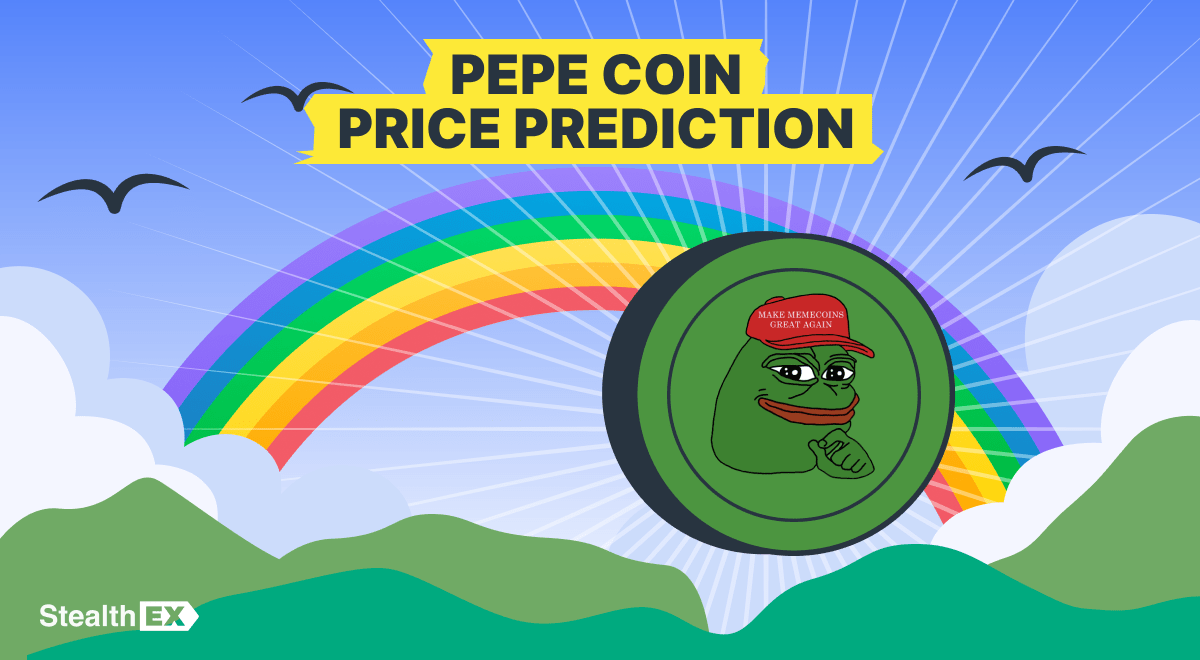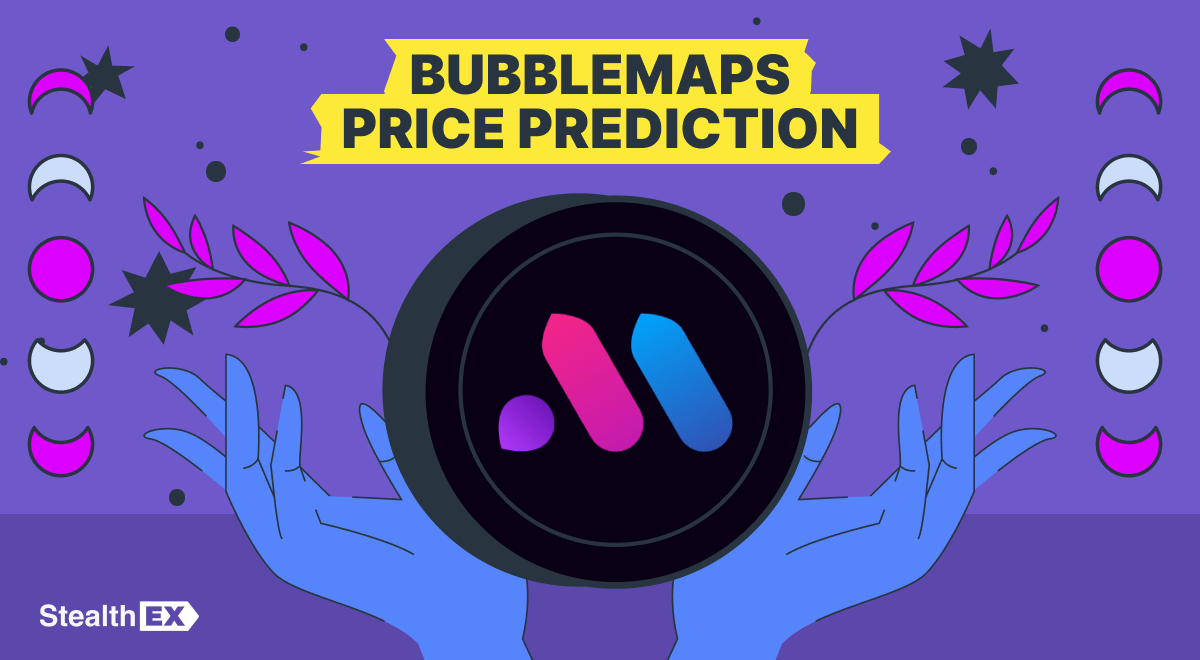What Determines the Price of a Cryptocurrency?

Cryptocurrencies are digital assets that can circulate without the need for a central monetary authority such as a government or bank. They are created using cryptographic techniques that enable people to buy, sell or trade them securely. Read more about what determines the price of a cryptocurrency in the new StealthEX article.

Today, digital currencies are becoming more and more popular, and as the world seems to be heading towards a new economic crisis, many people start thinking about buying crypto. Some even replace more traditional investment assets such as stocks or index funds with highly volatile crypto coins, while others dream of investing in digital assets without fully understanding the mechanism behind them and what exactly makes crypto prices go up and down.
Bitcoin and most other cryptocurrencies are supported by a technology known as blockchain. The blockchain technology can be used not only for money transfers, lending and financial exchanges, but also in the fields of real estates, data storage, voting and logistics. All of this contributes to the development of cryptocurrencies and this is essentially what determines the price of a cryptocurrency, among other factors.
Article contents
How Are Crypto Prices Determined?
There is hardly any investment enthusiast who has not tried to understand why cryptocurrencies fluctuate and what affects cryptocurrency prices.
All in all, there’re many factors, including:
- Economy
- Cost of production
- Supply and demand
- Availability on exchanges
- Governance regulations and legal requirements
- Competition
- Media, etc.
Let’s take a closer look at what affects crypto price.
Economy
As Bitcoin and other cryptocurrencies are not issued by a central bank or backed by a government, the monetary policy tools, inflation rates, and economic growth measurements that typically influence the value of a currency have a lesser effect on digital assets. Nonetheless, due to the globalized and decentralized nature of Bitcoin and many other crypto coins, they are impacted by the macroeconomic events of nearly every country in the world.
Cost of Production
People who build the blockchain by verifying transactions and generating units of currency are miners. The miner, however, is just a computer running a program that solves progressively more difficult algorithms where the reward is a new unit of that currency. Mining is an extremely energy intensive operation. By some estimates, international Bitcoin mining consumes more electricity than Switzerland. Ultimately every miner is aiming for the lowest cost of production. It’s evident why the cost of crypto production drives crypto prices up and down.
Supply and Demand
The supply of a crypto coin also plays a vital role in determining its price. A scarce asset is more likely to have high prices, whereas one available in plenty will have low prices. One perfect example is Bitcoin: the rate at which it is created is reduced every four years in a process called a halving. Bitcoin’s future supply is therefore running out, which adds to demand.
Availability on Exchanges
A crypto exchange is a platform that lets you buy and sell cryptocurrencies. Exchanges reflect current market prices of the cryptocurrencies they offer. If a coin is scarce or if it’s in demand, this will drive the cryptocurrency’s price up and down.
Governance Regulations and Legal Requirements
According to ADBI Institute research, effective governance institutions are associated with a less restrictive regulatory stance on cryptocurrency. The results of their study imply that a certain level of institutional quality may be necessary before opening up to new forms of financial technology. Cryptocurrency regulation is clearly evolving. For instance, former SEC Chairman Jay Clayton had stated in 2019 and 2020 that BTC and ETH are not securities, which exempts them from governance regulations. Wharton professor of legal studies and business ethics Brian Feinstein comments: “When a country imposes a new restriction, we don’t see crypto traders fleeing that jurisdiction for more permissive countries. However, when countries enact anti-money laundering measures, we can see price declines.”
Competition
There are thousands of different cryptocurrencies in existence, with new projects and tokens launching every day. New tokens can enter the market easily, but creating a viable token also relies on building a network of users of that token. A useful application on the blockchain can quickly build a network, especially if it improves upon a limitation of a competing blockchain. If a new competitor gains momentum, it takes value from the existing competition, thus sending the price of the other party down as the new competitor’s token sees its token increase in value.
Media
Social media and other media outlets can cause cryptocurrency price fluctuations. Kelly Ann Coultier from the University of Essex analyzed crypto media articles that influenced price changes in Bitcoin 2018 and 2019. The charts she presented show the 5% most negative changes in a two-year period, and all of them are associated with Bitcoin drop in price, supporting the fact that these generalized discourses are sensitive themes, which have great effects on the asset’s volatility. Social media aspects also help boost the popularity of certain crypto coins.
How to Predict Bitcoin Price Movement?
So, how can we predict price action? In general, Bitcoin and crypto prices are extremely volatile. For instance, Bitcoin was skyrocketing in November 2021, hitting an all-time high of nearly $69,000. However, in less than three months BTC price dropped to around $35,000 per coin, which, taking into consideration its earlier rise, is all the more astonishing. Some experts claim that BTC will go as low as $10,000 in 2022, virtually wiping out all of its gains in the past year and a half. Some analytics predict that crypto exchanges may suffer from a massive hacker attack that will happen as early as the fall of 2022 and that will lead to Bitcoin’s further regulation, a severe price drop and the change of the crypto landscape in general.
The future price of Bitcoin and other cryptocurrencies will heavily depend on the legal requirements and new regulations, global economy and media, so virtually no one has a definitive answer to the question “Will the Bitcoin price go up?”
Investing into cryptocurrencies is a serious risk and it’s an investment that should not be taken lightly. It’s best to assess all the risks and make an informed decision. However, if you’re willing to buy or exchange digital assets, you can use StealthEX services.
How to Buy Cryptocurrency?
To buy or convert your existing crypto into other assets, you can just follow these simple steps:
- Choose the pair and the amount for your exchange. For instance, BTC to ETH.
- Provide the recipient address to which the coins will be transferred.
- Move your cryptocurrency for the exchange.
- Receive your ETH coins.
Make sure to follow us on Medium, Twitter, Telegram, YouTube, and Reddit to get StealthEX.io updates and the latest news about the crypto world. If you need help, drop us a line at [email protected].
Please make sure to always research any cryptocurrency and assess your risks before you invest.
Bitcoin price crypto price prediction cryptocurrency market price analysis price predictionRecent Articles on Cryptocurrency
 PEPE Coin Price Prediction: When Will PEPE Reach $1?
PEPE Coin Price Prediction: When Will PEPE Reach $1?  Bubblemaps Price Prediction: Is BMT Coin a Good Investment?
Bubblemaps Price Prediction: Is BMT Coin a Good Investment? 
